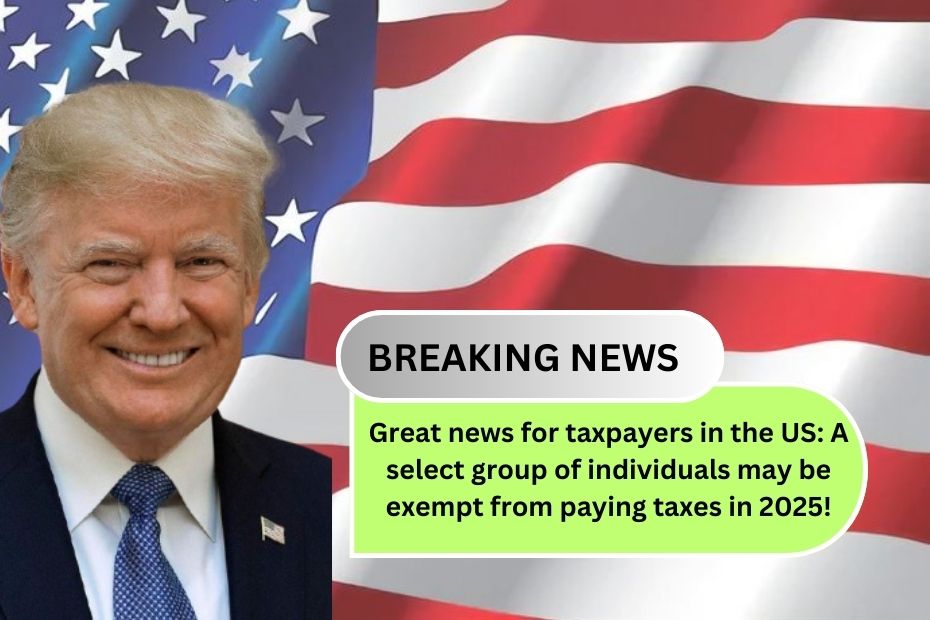Great news for taxpayers in the United States: some groups of people will be able to avoid paying taxes in 2025. This is because of new changes aimed at easing financial burdens for those facing unique challenges. These updates will provide partial or full exemptions from federal taxes for certain groups, which means big savings for many. Understanding these changes can help you make smart decisions about your finances, so let’s take a closer look at who could benefit from these updates in 2025.
1. Seniors with Limited Income
Many retirees in the U.S. will be able to enjoy full tax exemptions in 2025. Seniors who earn below a certain amount may not need to pay taxes on their income. Additionally, Social Security benefits could be exempt from tax for those with little or no other income. This can bring huge financial relief to older citizens who are living on a fixed income.
2. Veterans Receiving Disability Benefits
For U.S. veterans who receive disability benefits from the Department of Veterans Affairs (VA), the good news is that these payments are considered non-taxable income. This means that veterans will be able to keep all of their disability payments without worrying about having to pay taxes on them. This exemption helps ensure that the money meant for their well-being is not taken away by taxes.
3. Low-Income Households
Families and individuals who fall below the federal poverty line might be able to receive tax relief through programs like the Earned Income Tax Credit (EITC). These programs are designed to reduce the amount of taxes that low-income people need to pay, and sometimes they even provide refunds. This helps improve financial security for families who need it the most.
4. Students with Eligible Scholarships
Students who receive scholarships that cover their tuition and related expenses may not have to pay taxes on that money, as long as the scholarships meet the rules set by the IRS. This can reduce the financial burden on students and their families, making it easier for them to focus on their education instead of worrying about taxes.
5. Residents of Disaster Zones
People living in areas that have been declared disaster zones by the federal government may qualify for temporary tax relief. This allows them to focus on recovering from the disaster without the added worry of paying taxes. This exemption is meant to help those who have suffered due to natural disasters and need time to get back on their feet.
6. Charity Workers Abroad
Volunteers or employees of non-profit organizations who work overseas may be eligible for special tax exclusions. These exclusions can lower their taxable income, recognizing the important work they are doing in helping people around the world. This exemption is meant to support those who dedicate their time and effort to helping others in need.
Making the Most of These Changes
To take full advantage of these tax exemptions in 2025, it’s important to stay informed and check the latest IRS rules. You can also consult a tax professional to make sure you’re eligible and understand the details of each exemption. Being aware of these changes will help you reduce your tax liability and make better financial decisions for the future.
The 2025 tax updates are not only about saving money; they also aim to create a fairer and more inclusive tax system. These changes are designed to help those who need it the most, ensuring that everyone has a chance to benefit from tax relief.
Conclusion
The tax changes in 2025 are a great opportunity for many taxpayers in the U.S. These exemptions will provide relief to seniors, veterans, low-income families, students, residents of disaster areas, and charity workers abroad. By understanding these changes and taking action, individuals and families can save money and improve their financial future. It’s important to stay informed about the latest IRS updates and seek professional advice if needed. These new tax policies are a step towards making the tax system fairer for everyone.
Frequently Asked Questions (FAQ)
1. Who qualifies for tax exemptions in 2025?
In 2025, certain groups of people will qualify for tax exemptions, including seniors with limited income, veterans receiving disability benefits, low-income households, students with eligible scholarships, residents of disaster zones, and charity workers abroad.
2. Can seniors avoid paying taxes on Social Security benefits in 2025?
Yes, seniors earning below a certain threshold may be fully exempt from taxes, including Social Security benefits, if they have minimal additional income.
3. Are disability benefits from the VA taxable in 2025?
No, disability payments from the Department of Veterans Affairs (VA) are considered non-taxable income, meaning veterans will not need to pay taxes on these benefits.

